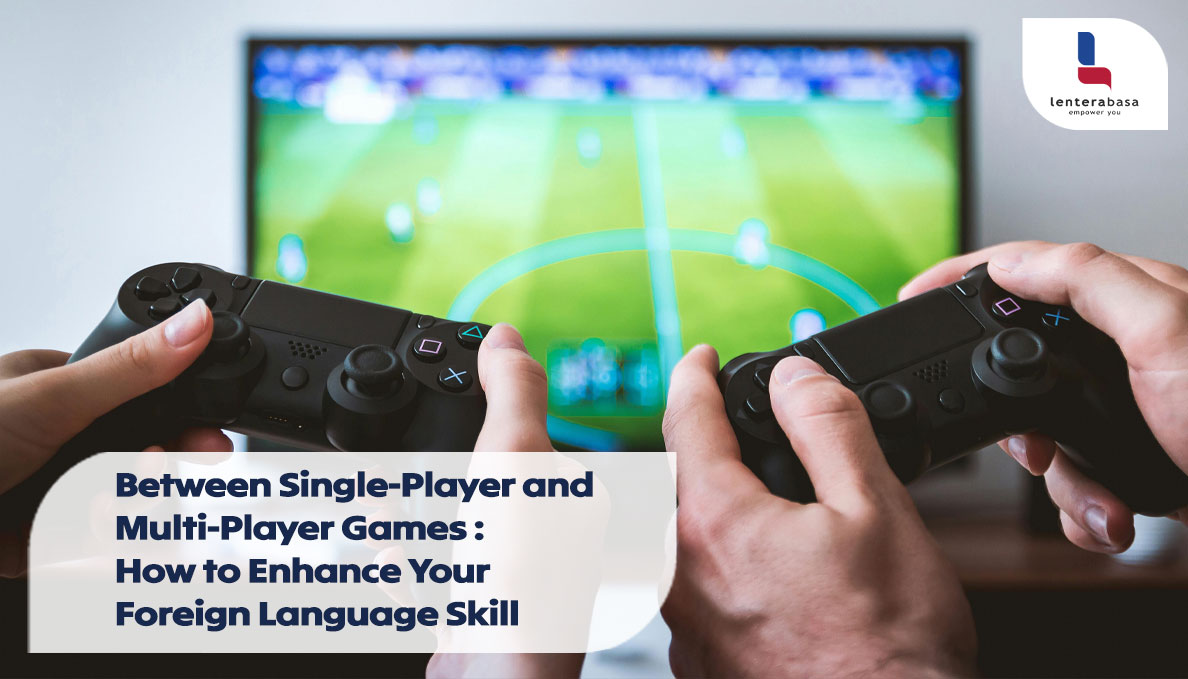Learning a foreign language doesn’t have to be limited to textbooks and flashcards. Video games, whether you prefer solitary adventures or competitive online action, offer an immersive, dynamic, and highly effective environment for language acquisition. It’s an educational hack that makes learning genuinely fun.
But which type of game is better for which skill? Understanding the difference between single-player and multi-player games can help you tailor your playtime for maximum language benefit.
1. Single-Player Games: The Ultimate Reading and Comprehension Lab
Single-player games, such as RPGs (Role-Playing Games) or story-driven adventures, are indispensable for building foundational vocabulary and reading comprehension.
Core Language Benefits:
- Massive Vocabulary Input: These games are rich in narrative, dialogue, and lore. By setting the game language to your target language (e.g., Japanese, French, or Spanish), you are constantly exposed to thousands of unique words and phrases used in context.
- Reading Endurance: You are forced to read long blocks of text (dialogue, menus, item descriptions, side quests) to progress. This improves your reading speed and stamina—crucial for passing standardized language tests.
- Contextual Understanding: Unlike vocabulary lists, the meaning of a word in a game is immediately reinforced by the visual action, the character’s expression, or the context of the story, making recall easier.
How to Optimize Your Single-Player Time:
- Stop and Translate: Keep a digital dictionary handy. If a word or phrase is repeated and you don’t know it, pause the game and look it up immediately.
- Focus on Dialogue: Pay attention to how characters express emotion. Note the difference between formal and informal speech (e.g., vous vs. tu in French).
- Engage the Audio: Change the game audio to the target language and enable subtitles in the same language. This connects the sound of the word to its written form.
2. Multi-Player Games: The Real-World Speaking Simulator
Multi-player online games (MMOs, FPS, MOBA) are invaluable for developing your listening comprehension and, most importantly, your speaking and rapid response skills.
Core Language Benefits:
- Real-Time Listening Practice: You must process information instantly from teammates during intense situations (e.g., “Attack left flank!” or “Watch out for the enemy behind!”). This trains your brain to understand language without needing to translate it first.
- Forced Speaking Output: Communication is necessary for survival and teamwork. You are highly motivated to overcome the fear of speaking because the success of your team depends on it. This is true communicative practice.
- Slang and Informal Language: You pick up modern colloquialisms, internet slang, and casual abbreviations that are rarely taught in traditional classes, making your language sound more natural.
How to Optimize Your Multi-Player Time:
- Join a Team/Guild: Actively seek out teams or guilds comprised primarily of native speakers.
- Use Voice Chat (Mandatory): Avoid text chat. Force yourself to use the microphone. Even if you start with short, simple commands, the necessity of quick speech is the best accelerator for fluency.
- The “Mistake Acceptance” Mindset: Mistakes are inevitable in intense multi-player environments. Embrace them! Native speakers will quickly correct you or simply understand the context, making the learning low-stress and high-reward.
The Best Strategy: A Balanced Mix
To truly master a language, use a balanced approach. Use single-player games to build the passive skills (reading and listening comprehension, vocabulary foundation), and then use multi-player games to activate those skills under pressure (speaking and real-time response).
Gaming is no longer a guilty pleasure; it’s a powerful, fun, and highly effective tool for becoming fluent. Give your brain the dynamic learning environment it craves!
Ready to combine fun and learning? Get tips and tricks for learning languages at Lenterabasa.com

